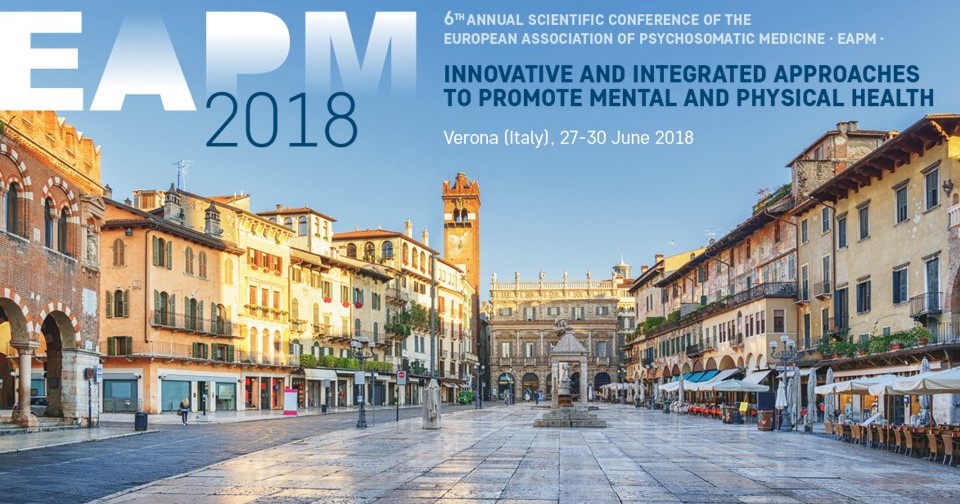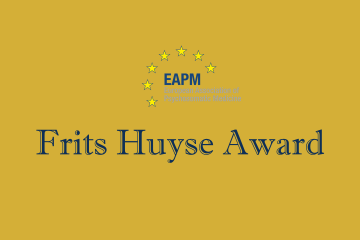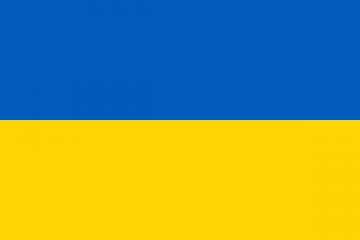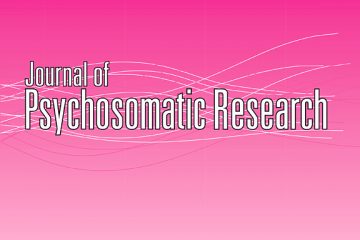Conference President: Prof. Mirella Ruggeri
27 – 30 June 2018
Verona (Italy)
Final Program Verona EAPM 2018

CONGRESS REPORT
6th Congress of the European Association of Psychosomatic Medicine
Verona, June 27-30, 2018
The 6th Congress of the European Association of Psychosomatic Medicine has been held in Verona from 27 to 30 June 2018, focussed the theme INNOVATIVE AND INTEGRATED APPROACHES TO PROMOTE MENTAL AND PHYSICAL HEALTH. It has been promoted jointly by EAPM, the University of Verona and the Verona Hospital Trust and has been held under the Patronage of the European Psychiatric Association (EPA), the International College Of Psychosomatic Medicine (ICPM) and the Italian Association of Consultation Liasison Psychiatry. It has been an event of great relevance not only for Psychiatry and Psychosomatic Medicine, but also for all specializations in medicine. It has attracted more than 600 participants from 45 countries.
Several critical issues on physical and mental illness interaction have been proposed during the conference, starting from the awareness that they share common risk factors with effects that are not only additive but also synergistic. Comorbidity is a complex event due to its numerous clinical and socio-environmental implications. About 25% of patients with chronic illness also suffer from mental disorders, and higher rates of comorbidity are also found for specific conditions (eg cancer and neurological disorders). Doctors tend to focus on symptoms and organs, underestimating the importance of mental health problems, especially when they accompany severe physical illness. This is largely related to the belief that mental health problems, such as simple corollaries of the main disease, are destined to disappear with the improvement of physical illness. On the other hand, psychiatrists, psychologists and practitioners working in mental health in general may be just as reluctant to deal with the medical comorbidities in their patients.
This is why it is important to make it clear to all healthcare administrators that there is a real “imperative” both economic and moral to foster innovation and integration of approaches aimed at promoting both physical and mental health. Data from economic models show that there are “avoidable” costs (in some cases up to 30-40% of health costs) resulting from excessive or inappropriate use of resources, decreased productivity, disability, and reduction of quality of life. Putting a holistic model into practice not only reduces these costs but also brings important benefits for psychophysical wellbeing: we are therefore faced with a situation where the advantage would be threefold: they reduce costs, increase psychological well-being and improve organic disease – that is that Americans call a “win win win” situation. Unfortunately rarely applied in practice, so far!
The theme of the interface between physical and mental health is absolutely one of the future priorities in health management for the entire population, which is extremely crucial and important, also because there have been important transformations in the needs of health care in recent decades. Today, the changed spectrum of health conditions (eg, multimorbidity, chronicity and aging) sometimes proves the inadequacies of a traditional medical care, approach which traditionally has been mainly focussed on the diagnosis and treatment of each disease separately. The aim of treatment should be instead the identification of all modifiable biological and non-biological factors and the achievement of individual goals, in the context of the bio-psycho-social approach. This approach appears fundamental both at the onset of a disease and in the context of chronic or multi-problem diseases.
The focus on the well-being of health workers has also been central to this conference. Medical and nursing staff working in hospitals experience high levels of psychological stress and burnout vulnerability through exposure to adverse clinical situations and organizational threats and challenges. Today there are interventions of proven effectiveness that can improve the well-being of hospital staff. Communication skills are now recognized as one of the basic clinical skills. Communication is particularly stressful for doctors who need to communicate bad news, inform patients about highly complex treatment procedures and request informed consent. Some studies indicate that doctors report that this stress lasts beyond the interaction. Doctors and nurses would be required to personalize information based on the needs and sensitivity of each patient, but professional communication is not learned spontaneously during the clinical career.
Several presentations have covered a variety of topics ranging from psycho-oncology, to communication techniques, to the impact of social and economic factors on organic diseases, to psychological approaches to pain management, to the reduction of patients’ suffering in the phases following surgery and transplantation, psychosomatic aspects in cardiology, gastroenterology, dermatology and much more.
This Conference has got impressive numbers: Over 600 professionals from the medical and psychiatric area have taken part, including world-leading experts from 45 different countries around the world. The scientific program of the Verona EAPM 2018 Congress has consisted of 519 presentations including 17 plenary lectures, 39 symposia, 223 oral presentations, 210 poster presentations, 10 Master classes and workshops, and several Special Interest Group meetings.
The Congress has begun on June 27 with a Preconference on Psycho-Oncology on the theme: Challenges And Opportunities In Psycho-Oncology: Screening, Assessment And Treatment In Clinical Care organized jointly with the Canadian Academy of Psycho-Somatic Medicine, the International Psycho-Oncology Society (IPOS) and the World Psychiatric Association’s sction on Psycho-Oncology and Palliative Care.
A Special Lecture at the end of the day has been held by Professor Mario Maj, former President of the World Health Organization, on the theme: 21st Century Psychiatry: Acknowledging Complexity While Avoiding Defeatism. The Location of the Special Lecture was of historical interest in itself: the University Building of Santa Marta, is a huge complex of military architecture, originally used for the production and storage of bread, grain and other troop rations. A permanent exhibition in the former bakery covers the history of the building and its relations with the city, with the further dimension of how soldiers were fed.
Further, during the three congress days, nine plenary lectures have covered issues related to:
- Making An Economic Case For Innovative And Integrated Approaches To Promote Mental And Physical Healthcare (David Mc Daid – London School of Economics, London, UK)
- The Future Of The Bio-Psycho-Social Model In The Age Of Systems Medicine (Peter Henningsen, Dean, TUM School of Medicine, Munich, Germany)
- The Clinical Role Of Psychosomatic Medicine (Giovanni A. Fava, University of Bologna, Bologna, Italy, and State University of New York at Buffalo, United States)
- Physical And Mental Health In Chronic Illness (Graham Thornicroft, King’s College London, United Kingdom)
- Patients In Context: A Call For A Comprehensive Understanding Of The Medically Ill (Friedrich Stiefel, University Hospital Lausanne, Switzerland)
- Group Interventions To Support Health Care Providers (Molyn Leszcz, University of Toronto, Sinai Health System; President-Elect, American Group Psychotherapy Association, Canada).
- This year’s Alison Creed Award Winner Professor Arthur J. Barsky (Harvard School of Medicine, Boston, USA) has given a lecture on Somatization: A Construct In Need Of Reexamination.
- Frits Huyse, from the Vrije Universiteit Medical Center Amsterdam has given a Lecture on the issue Is There Life After Retirement? From Velasquez To Sheeler!
- And finally, Raphael Herr (Mannheim, Germany) – recipient of the Young Researcher Award sponsored by Elsevier – has given a lecture based on his research on Longitudinal effects and mediators of psychosocial work characteristics on somatic symptoms.
Furthermore, 5 Masteclasses have been tougth, with 123 participants attending:
- The Carus Master Class on Trauma-Informed Care Interventions held by Clare Pain (MD, Associate Professor, Department of Psychiatry, University of Toronto; Canada) has addressed the impact of trauma, and the identification and management of patients suffering from symptoms and problems as a result of unresolved traumatic experiences. Clinical examples, demonstrations of techniques and strategies for working with trauma survivors has brought the theoretical material to life and illustrate the applied principles in practice.
- The Carus Master Class on Group Interventions For Staff held by Molyn Leszcz (University of Toronto, Sinai Health System; President- Elect, American Group Psychotherapy Association) has addressed the theory and practice of interventions that have impacted staff resilience, improved coping and adaptation, improvement of mental health literacy, reducing mental health stigma, managing stress and supported psychological safety in the workplace. Applications from micro levels with regard to group interventions for staff to macro levels with regard to hospital culture have been illustrated.
- The aim of the Carus Master Class on Research Methods And Targets of Psychosomatic Research held by Giovanni Andrea Fava (Department of Psychology, University of Bologna, Italy and Department ofPsychiatry, State University of New York at Buffalo) was to discuss the main critical issues that are concerned with psychosomatic research, based on the lecturer’s extensive experience with Psychotherapy and Psychosomatics. Various issues have been covered, such as: development of a psychosomatic hypothesis; formulation of a research protocol; choice of assessment instruments, with particular reference to clinimetric principles and the Diagnostic Criteria for Psychosomatic Research; writing the manuscript and submission of the paper to a journal.
- In the Carus Master Class on Physical And Mental Health In Chronic Illness held by Professor Sir Graham Thornicroft (Institute of Psychiatry, Psychology and Neuroscience, King’s College London, UK) isues such as the co-occurrence of mental and physical ill health, the concept of syndemics, evidence of premature mortality among people with mental illness, and the evidence of neglect of physical health problems among people with mental illness, and the contributions of stigma towards these problems were addressed. The participants of the Master Class discussed actions that are needed at the clinical level to address such disparities and, particularly, models of integrated care.
- The recipient of the Alison Creed Award, Arthur J. Barsky (Harvard Medical School Boston, USA) gave a Master Class on Conducting Randomized, Controlled Intervention Trials In Psychosomatic Medicine. In this session, the design and the statistical analyses of randomized-controlled trials conducted in patients with somatic symptom disorders were used to discuss critical issues of trials in psychosomatic medicine
An evaluation sheet was administered at the end of the Master classes and proved that – on a a scale ranging from 1 (worst); to 5 (best) – 64% of the attenders assigned to the speakers the score of 5, 31,7% the score of 4, with negligible percentages in the range of 2 and 3. Concerning the topics of the Masterclasses, 58,5% was rated 5, 30.9% 4 , and only 7.3% was rated 3. Usefulness of information for current and future research was rated as best (5) by 48% of participants, and 4 by 34%. Usefulness of information for clinical work was rated as best (5) by 38,2%, 4 by 32% and 3 by 19%. Usefulness of information for professional development was rated as best (5) by 50,4% of participants, 4 by 40% and 3 by 11%. Fianlly, the overall ratings of the master classes was rated as best (5) by 50,% of participants, 4 by 40% and 3 by 6.5%.
Being in Italy and especially in Verona means also having many occasions to enjoy music and art.
The FÒOV DANCE COMPANY, a Lucia Miriam Salgarollo choreographer’s working and research group in Verona, gave performances at the opening and closing cerimonies of the conference presenting parts of the ballet “Body and Mind: from Chaos to Harmony” from “The Merchant of Venice” by Shakespeare.
MARIO CHIARINI, a marvellous tenor, sung opera arias to open the plenary sessions and to close the conference. Mario Chiarini was born in Verona in 1980, son of art, also his father was a tenor, a pupil of Mario Del Monaco. He graduated in lyric singing at the Conservatory of Mantua and has performed in numerous opera concerts. In addition to his activity as an opera singer he also works as a choir director. But he is also a professional in the area of mental health, as he also graduated in Educational Sciences at the University of Verona.
Over 200 congress participants have attended the Gala Dinner at the Giardino Giusti, a garden that is considered one of the finest examples of an Italian garden and is one of the city’s marvels. It belongs to the Giusti family and was designed in the 16th century containing age-old trees, gargoyles, fountains, grottoes (which echo strangely) and ancient inscriptions all immersed in a carefully landscaped setting which take advantage of the various levels of the terrain. The garden has been visited throughout the centuries by famous tourists such as Goethe and Mozart.
In conclusion, we wish that this Conference – that has received so much attention and engagement by scientists and clinicians around the world – might not only be a highly fruitful experience, but also a fundamental occasion to activate an open debate and to encourage collaboration aimed to increasing integration and innovation in the field of Psychosomatic Medicine and also in the overall field of Mental Health, to the benefit of the population’s health and wellbeing. Finally, my co-workers and I do hope that all participants have enjoyed our beautiful country and our marvellous city, its anciest monuments, romantic landscapes, nice weather, good wine and food and…more!
We wish to express our gratitude to
- the Members of the International Scientific Committee for the cooperative work, the availbility and the excellent work done in the assessment of abstracts;
- the Members of the Program Committee who gave continuous support and fundamental advice, always ready to help;
- the Carus Master Class Committee, that has organised an excellent compilation of innovative Master classes;
- the Travel Award Committee, that has favoured a good selection of the applications of our young researchers;
- the National and Local Scientific Committees – especially Chiara, Doriana, Sarah, Michela – key persons that worked very hard to implement a good quality program;
- the COGEST Organizing Secretariat that have assisted me with dedication, competence, rigour, creativity, strong engagement and pleasant manners;
- the EAPM Administrator, Isabel Winter, who with patience and skilled knowledge has always found the correct answer to our questions;
- the EAPM president, Wolfgang Söllner, a gentle “Maestro”, from whom I have learned a lot in these last months.
Mirella Ruggeri
Congress President



0 Comments